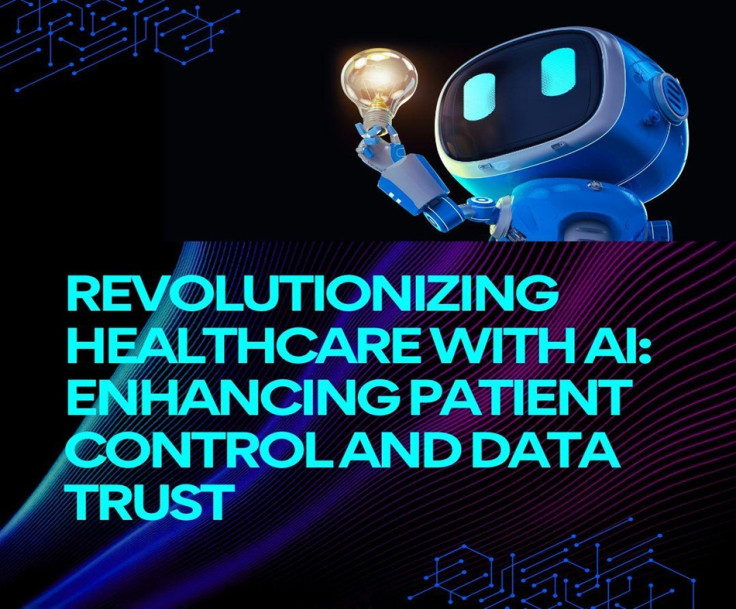Revolutionizing Healthcare with AI: Enhancing Patient Control and Data Trust

In a rapidly advancing digital healthcare landscape, artificial intelligence (AI) is playing a pivotal role in reshaping patient data management and enhancing patient autonomy. In an insightful article authored by Santosh Ratna Deepika Addagalla, the author delves into the transformative potential of AI-enhanced frameworks for patient data ownership and trust networks. These innovations offer new pathways for creating more secure, efficient, and patient-centered health ecosystems, especially when integrated with frameworks like TEFCA (Trusted Exchange Framework and Common Agreement) and FHIR (Fast Healthcare Interoperability Resources).
The Power of Standardized Data Exchange
One of the core innovations explored in this article is the seamless integration of AI with interoperability frameworks like TEFCA and FHIR, which enable standardized health information exchange across disparate systems. TEFCA addresses the long-standing challenge of fragmented healthcare data by promoting a unified national data exchange network. It establishes clear governance and operational protocols for participating entities, helping them communicate effectively across multiple health information networks. Complementing TEFCA, FHIR provides the technical architecture that facilitates modern data exchange through a resource-oriented approach. By using standardized APIs, FHIR allows for granular data access, which is essential for AI to generate meaningful insights from diverse data sources. This combination creates a robust foundation for AI systems that can better predict patient needs and streamline clinical decisions.
AI's Role in Enhancing Clinical Decision-Making
The article highlights AI's significant role in transforming clinical decision support systems. AI-powered systems, fueled by standardized data flows from TEFCA and FHIR, enable healthcare providers to make more informed decisions based on a complete patient history, irrespective of the systems and networks where the data was originally recorded. AI-driven predictive analytics are particularly promising, allowing clinicians to identify patterns that anticipate health risks before they escalate into critical conditions..
Empowering Patients with AI-Driven Health Dashboards
A key area where AI offers unprecedented improvements is in patient empowerment. The integration of AI with health data systems facilitates the development of intuitive, personalized health dashboards that allow patients to engage with their data meaningfully. These dashboards do more than present raw data; they offer actionable insights, helping patients make informed decisions about their health. AI enhances these platforms by translating complex medical information into understandable formats, considering factors such as the patient's environment and current health status.
Further, AI's potential to redefine patient consent is highlighted through the introduction of intelligent consent management systems. Traditional consent mechanisms often fail to offer patients the flexibility they need to manage their data sharing preferences in a nuanced and accessible way.
Ensuring Patient Autonomy During Incapacitation
A particularly groundbreaking innovation discussed in the article is the AI-powered management of patient data during periods of incapacitation. AI technologies can interpret and execute patient wishes from advanced directives, ensuring that their health data is only accessed according to their pre-set preferences. This is especially valuable in emergency situations where patients may be unable to provide explicit consent. Additionally, AI supports the creation of dynamic trust networks that extend patient control over data even when they cannot actively manage it. These trust networks, which involve a range of individuals such as family members and caregivers, ensure that the right people have access to necessary information while respecting patient autonomy.
The Future of Patient-Centered Healthcare
While the potential of AI in healthcare is vast, the article emphasizes that the path to realizing these benefits is not without its challenges. Technical integration, algorithmic transparency, and the development of a skilled workforce are just a few hurdles that need to be overcome. However, with thoughtful implementation, the combination of AI and interoperable frameworks like TEFCA and FHIR promises to revolutionize healthcare by making patient data more accessible, secure, and controlled by the patients themselves.
In conclusion, the integration of AI into healthcare is more than just a technological leap; it is a step toward a patient-centered ecosystem that values autonomy, privacy, and proactive care. As Ms. Santosh Ratna Deepika Addagalla concluded, the true success of these innovations will not be measured by their technical sophistication but by how effectively they improve health outcomes and enhance patient experiences. With continued collaboration and thoughtful deployment, these technologies will help create a healthcare system that truly puts the patient at the center of care.
Originally published on Tech Times
ⓒ {{Year}} TECHTIMES.com All rights reserved. Do not reproduce without permission.



























